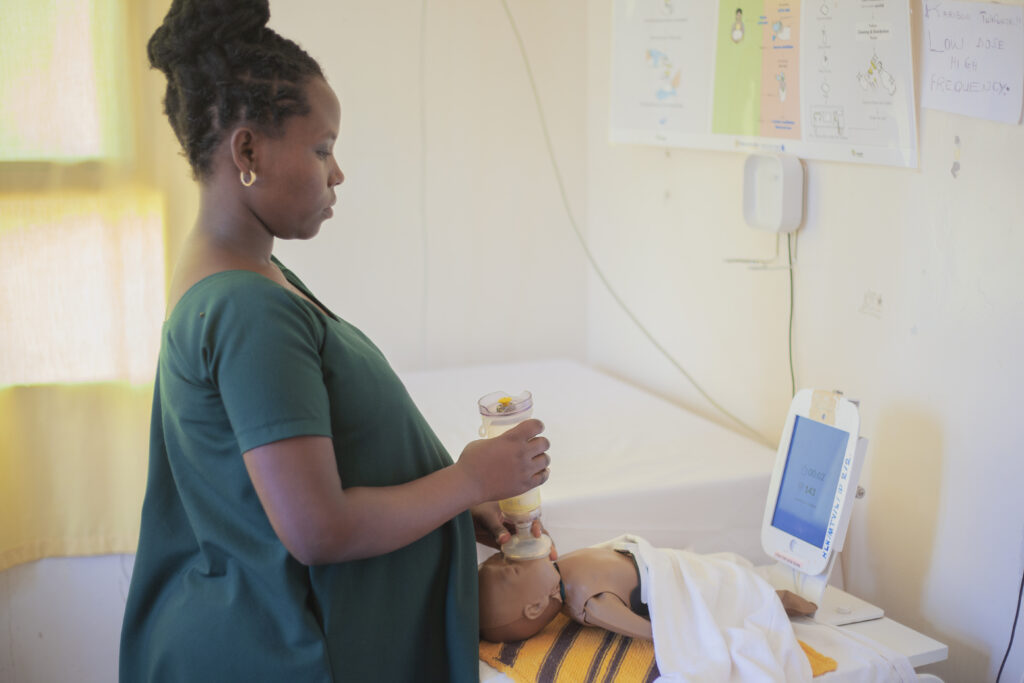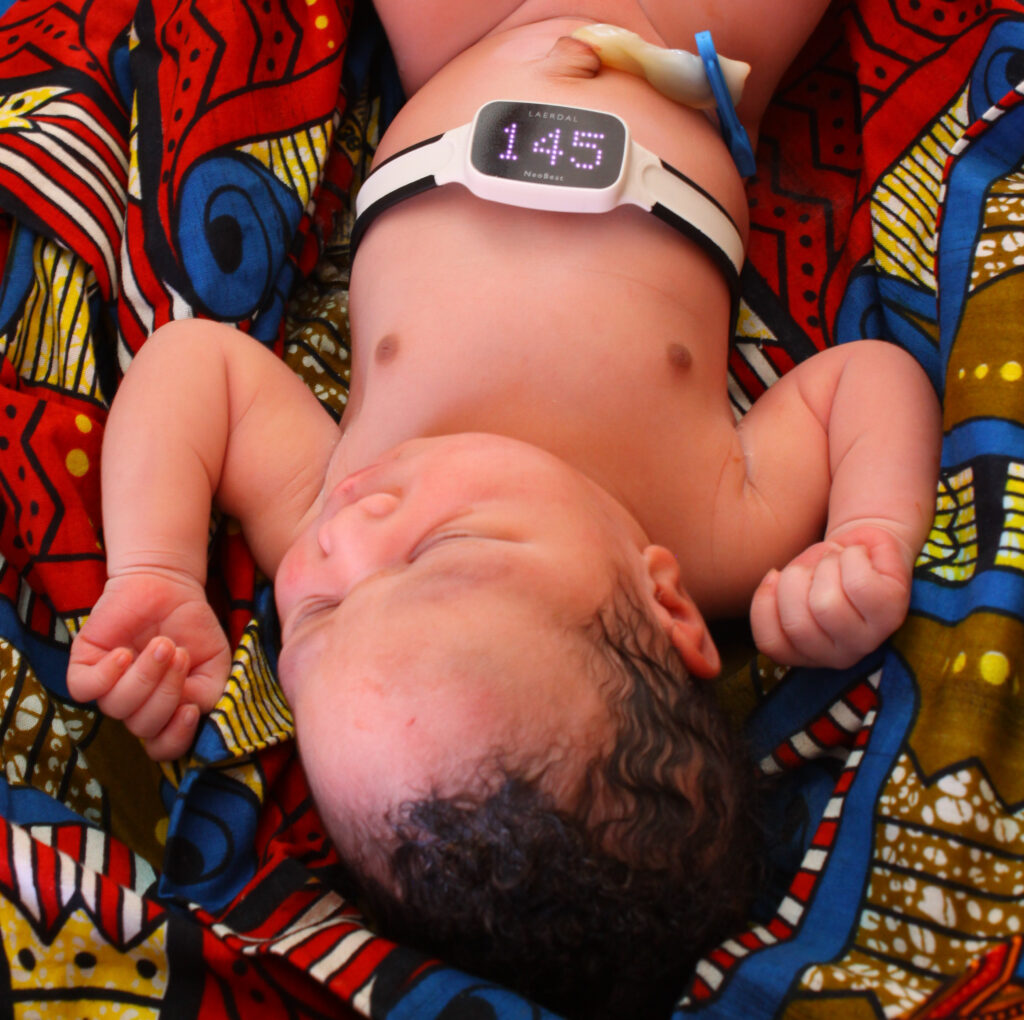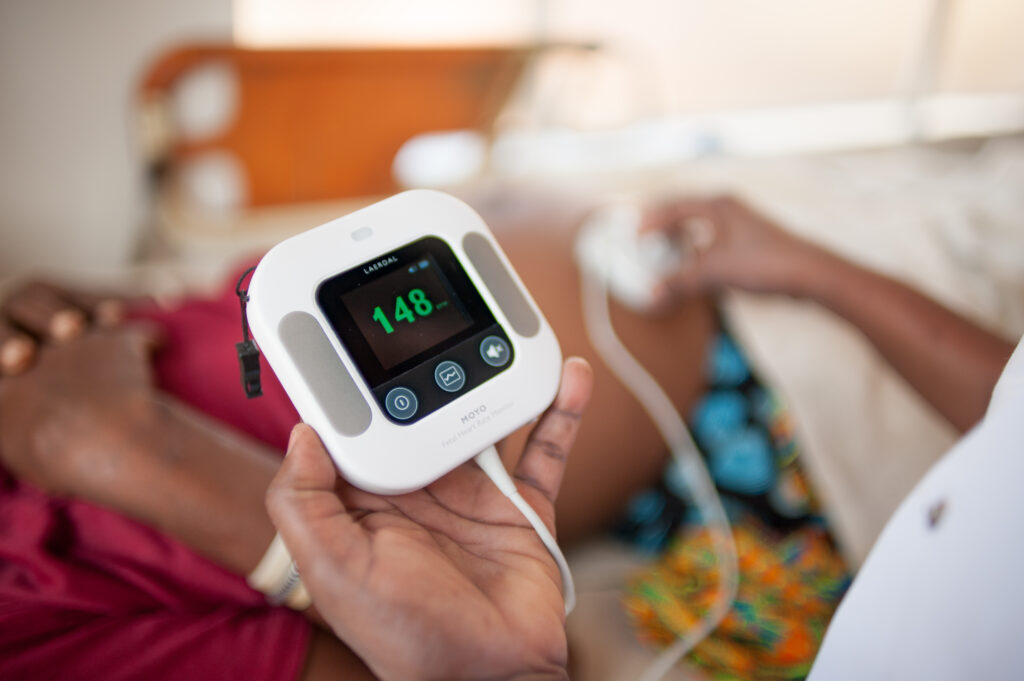Building on 10+ years of research and collaboration the Safer Births Bundle of Care program was co-developed in Tanzania. It was awarded US$4.5 million in funding from Global Financing Facility, a division of the World Bank, to scale-up from 1 hospital to 30 hospitals. The program continued to show remarkable impact and cost-efficiency and received a further USD 8.5m in 2023 for the scale up to 150+ health facilities, now reaching thousands of healthcare providers.
What is the Safer Births Bundle of Care program?
The Safer Births Bundle of Care program equips birth attendants with the skills and knowledge needed to manage the most common causes of maternal and neonatal mortality. It focusses on the use of regular, on-site, low-dose high-frequency training, improving the confidence and competence of healthcare workers.
The program consists of clinical innovations, training simulators and a set of solutions focussed on continuous quality improvement and sustainability.
Learn more about the components of the program in this report.
Clinical Innovations
Training Simulators



Quality improvement and sustainability over time
Data collection and analysis is a key component of the program, allowing for continuous quality improvement which is essential to increase newborn and maternal survival.
Sustainability of the implementation is enabled by strong ownership from the Ministry of Health and from regular mentorship and supportive supervision of local facilitators who are trained in simulation methodology.
Remarkable Reductions in Newborn and Maternal Deaths
In February 2025, the New England Journal of Medicine published a game changing paper showing the impact of the Safer Births Bundle of Care program in Tanzania. The study covered a 3-year period, covering 30 hospitals across 5 regions – and included 300,000 mother-baby pairs.
The study showed:
- 40% reduction in early newborn deaths
- 75% reduction in maternal deaths
Collaborating Partners
The success of the Safer Births Bundle of Care program in Tanzania has been thanks to the strong collaborative working of many partners.
These include: Haydom Lutheran Hospital, the Tanzanian Ministries in Health (MoH and PO-RALG), the Tanzanian Midwifery Association (TAMA), the Pediatric Association of Tanzania (PAT), Stavanger University Hospital (Norway), SAFER (a simulation and implementation center based in Norway), Laerdal Global Health, and UNICEF.